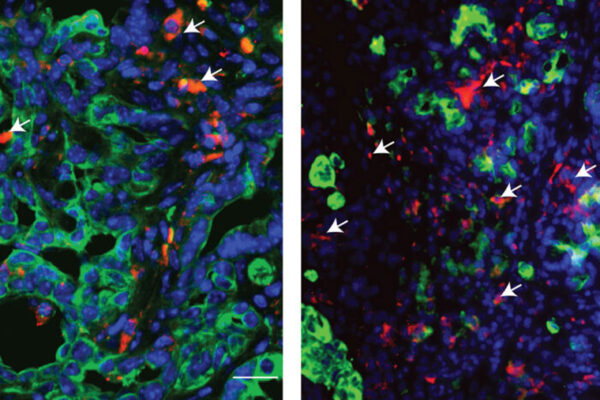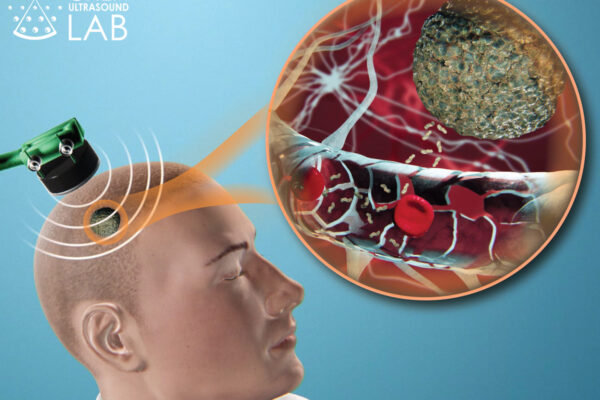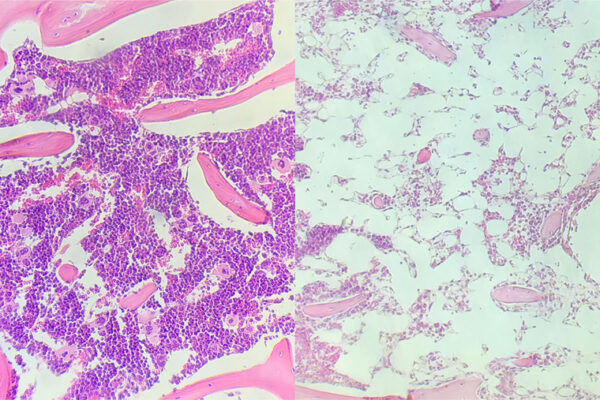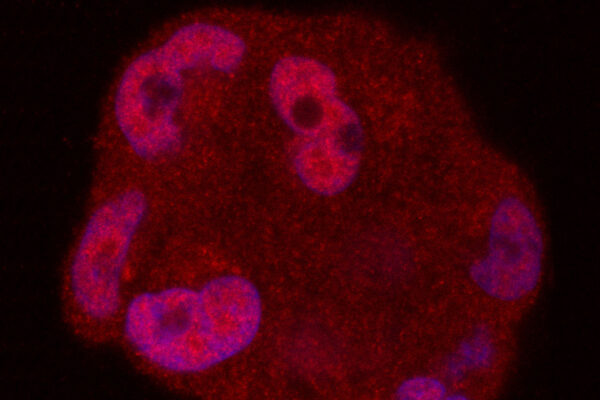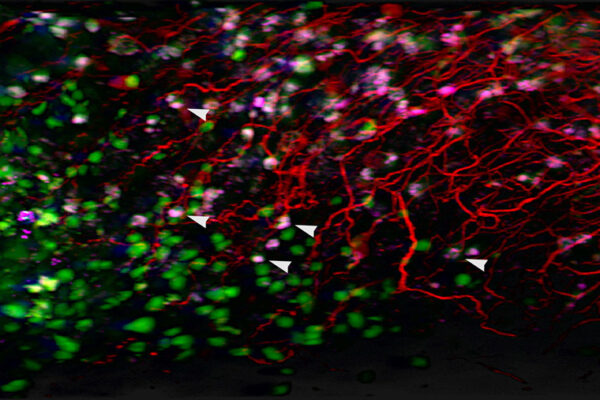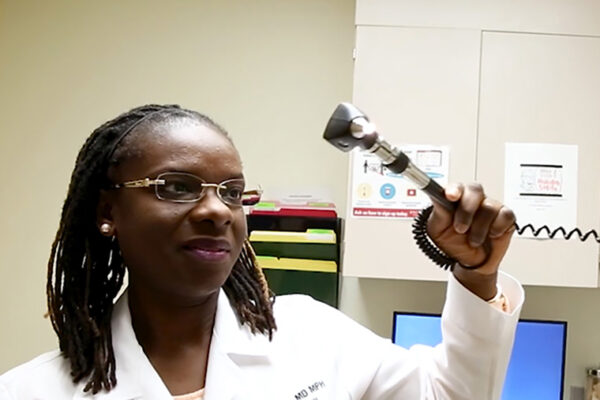Drug compound makes pancreatic cancer cells more vulnerable to chemo
Researchers at Washington University School of Medicine have identified a drug compound that makes pancreatic cancer cells more vulnerable to chemotherapy.
How distance from care affects cancer outcomes
In a seemingly counterintuitive finding, young adults diagnosed with central nervous system tumors might have better survival rates the farther they live from care, finds a new Brown School study.
Early warning system model predicts cancer patients’ deterioration
A multidisciplinary team of researchers at Washington University is developing a machine-learning-based early warning system to predict cancer patients’ deterioration and improve patient outcomes.
Noninvasive brain biopsy shows improved sensitivity in tumor detection
A team of researchers led by Hong Chen has developed a noninvasive diagnostic method that may one day replace tissue biopsies with a simple blood test.
New technique may lead to safer stem cell transplants
Washington University School of Medicine researchers, studying mice, have developed a method of stem cell transplantation that does not require radiation or chemotherapy. The study opens the door to safer stem cell transplantation.
New strategy against treatment-resistant prostate cancer identified
A study from Washington University School of Medicine has identified an RNA molecule that suppresses prostate tumors. According to the research, restoring this so-called long noncoding RNA could be a new treatment strategy.
Cancer moonshot grant funds research into reducing health disparities
Washington University School of Medicine has received a $17 million grant from the National Institutes of Health (NIH) to address disparities in cancer research, treatment and outcomes in underrepresented populations.
Jha’s NIH grant to support cancer research
The latest National Institutes of Health (NIH) grant for Abhinav Jha at the McKelvey School of Engineering is another step toward early prediction of therapy response in patients with lung cancer.
$7.5 million to study elusive cell type important in aging, cancer, other diseases
Washington University School of Medicine in St. Louis has joined the NIH’s SenNet, a national research network focused on understanding senescent cells, an elusive but important cell type that plays key roles in the diseases of aging.
African American breast cancer patients less likely to receive genetic counseling, testing
Researchers at Washington University School of Medicine have surveyed cancer doctors to identify differences in physician attitudes and beliefs that may contribute to a gap in referrals to genetic counseling and testing between Black women and white women with breast cancer.
Older Stories
